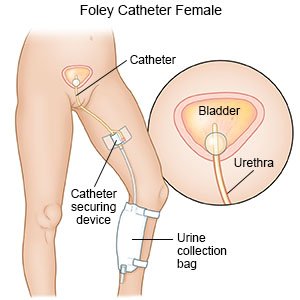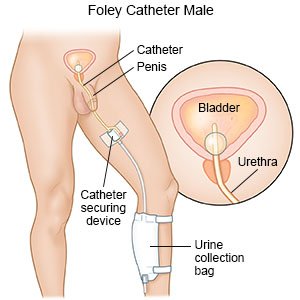Pyeloplasty for Adults
Medically reviewed by Drugs.com. Last updated on Aug 4, 2025.
What do I need to know about pyeloplasty?
Pyeloplasty is surgery to remove a blockage or narrowing between your kidney and ureter.
 |
How do I prepare for pyeloplasty?
- Your surgeon will talk to you about how to prepare for surgery. You may be told not to eat or drink anything after midnight on the day of your surgery. Arrange to have someone drive you home when you are discharged.
- Tell your surgeon about all your current medicines. Your surgeon will tell you if you need to stop any medicine for surgery, and when to stop. Your surgeon will tell you which medicines to take or not take on the day of your surgery.
- Tell your surgeon about any allergies you have, including to anesthesia or medicines. You may be given an antibiotic to help prevent a bacterial infection.
- Your surgeon will tell you if you need any tests before your surgery, and when to have them.
Related medications
What will happen during pyeloplasty?
- You will be given general anesthesia to keep you asleep and free from pain during surgery. A urinary catheter will be inserted while you are asleep. This helps drain urine from your bladder.


- Pyeloplasty may be done as open or laparoscopic surgery. For open surgery, your surgeon will make 1 incision over the blocked area. For laparoscopic surgery, your surgeon will make 3 small incisions in your abdomen. A laparoscope and other tools will be placed inside your abdomen through the incisions. A laparoscope is a long, thin tube with a light and camera on the end. Your surgeon will detach the ureter from the kidney. The blocked or narrow area will be removed. Then the ureter will be reattached to the kidney. A stent may be placed in the ureter to keep it open.
- The incisions will be closed with stitches or skin adhesive tape and covered with a bandage.
What should I expect after pyeloplasty?
- You will be taken to a recovery room so healthcare providers can watch for any problems. You will then be taken to your hospital room.
- The urinary catheter will stay in place until your ureters work properly. You may be sent home with the urinary catheter in place. Healthcare providers will teach you how to care for the catheter at home.
- You may have pain when you urinate or see blood in your urine. This is normal and should only happen until your provider removes the stent.
- The stent will stay in place for about 4 weeks after surgery. This helps keep the ureter open, drain urine, and prevent urine from leaking at the surgery site. Your provider will tell you when to return to have the stent removed.
What are the risks of pyeloplasty?
You may bleed more than expected or develop an infection. The ureters may not connect properly to the bladder or may leak urine. Your kidneys, bladder, or other nearby organs may be damaged. You may need another surgery to fix organ damage. Scarring may build up in the surgery area. Scarring may cause another obstruction that will need to be removed with surgery.
Care Agreement
You have the right to help plan your care. Learn about your health condition and how it may be treated. Discuss treatment options with your healthcare providers to decide what care you want to receive. You always have the right to refuse treatment. The above information is an educational aid only. It is not intended as medical advice for individual conditions or treatments. Talk to your doctor, nurse or pharmacist before following any medical regimen to see if it is safe and effective for you.© Copyright Merative 2025 Information is for End User's use only and may not be sold, redistributed or otherwise used for commercial purposes.
Further information
Always consult your healthcare provider to ensure the information displayed on this page applies to your personal circumstances.
